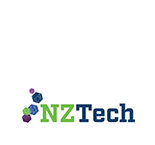By Mitchell Pham, Chair of the Digital Council for Aotearoa New Zealand.
When I accepted the position as chair of the Digital Council for Aotearoa New Zealand, I had a simple mission in mind — to leave no one behind as New Zealand gears up to get the very best from digital technologies and data.
My plan was to reach out to people, to consult widely and often and to draw on my own experience and knowledge of New Zealand’s rich and diverse communities.
I am delighted to see that my fellow Council members are personally driven to do the same.
So, who are the communities I know well and strongly identify with?
Well, there are quite a few, actually.
The business entrepreneurship, technology innovation and financial services communities, obviously. But also the migrant, refugee, government, industry, civil society and global leadership communities.
Another community that has shaped who I am today; how I think about the world; and my approach to technology and data is New Zealand’s health, disability and social services sector.
Involvement with the health, disability and social services sector
First and foremost, I’ve come to know this community personally through my own refugee journey and experience, as well as through my extended family and friends.
I have learned about the complexity of the system.
I’ve seen firsthand how exhausting it can be to navigate and how siloed the government departments responsible for policy, funding and services can be — each with its own jargon, its own pedagogy and its own way of doing things.
On the upside, I’ve also witnessed the rewards of support when it is granted, the unflagging care and professionalism of frontline workers and the strength of leadership in the sector.
These were just some of the insights I drew on in 1995 when I started looking at how technology might help solve some of the sector’s issues.
Technology solution and innovation platform for the sector
My team at Augen works with a diverse range of industry sectors.
For more than 20 years, we collaborated with organisations across New Zealand’s health, disability and social service landscape to develop and implement a client management software (CMS) platform that was built with the sector, for the sector.
From the outset, our reason for co-creating this technology platform was to enable people and organisations to capture, collate and share data more efficiently, while maintaining high standards of data security and privacy.
Just as important was enabling the sector to access the data they needed in real-time to better understand the quality and delivery of their services, report more accurately and frequently and make good evidence-based decisions at both the operational and governance levels.
Together, we achieved these things and much more — in fact, some organisations ended up using the CMS platform as an information hub to connect services, clients and funders.
At a personal level, this work proved to me digital technologies and data can play an important role in society.
They can help us solve complex problems, improve the user experience and, better yet, serve the needs of those who are so often left behind.
May 2020 meeting with the sector
Next week I’m looking forward to reuniting with some members of the health, disability and social services community at one of the Digital Council’s sector group meetings.
I hope to see some familiar faces and will no doubt enjoy meeting some new leaders in the field.
The important thing to me, as chair of the Digital Council, is to keep the interests of this sector very present in the work of the Council as we embark on our three-year work programme.
This is just the start of our shared journey.
It’s also an opportunity to re-engage and reflect on how we can continue to learn from one another and build on the successes we’ve enjoyed to date.
Like some of my colleagues on the Council, I may be a ‘tech’ person, but our view is that digital technologies and data don’t mean much unless we’re able to use them to benefit the whole of society, particularly those New Zealanders who are among our most vulnerable.






